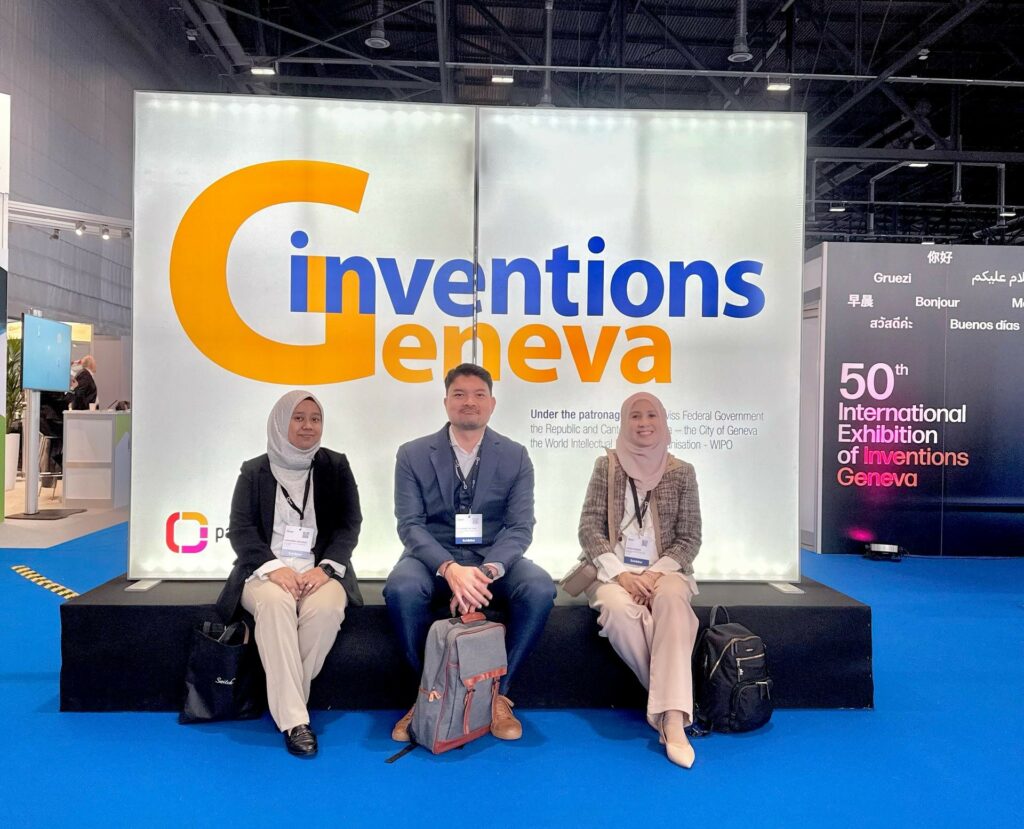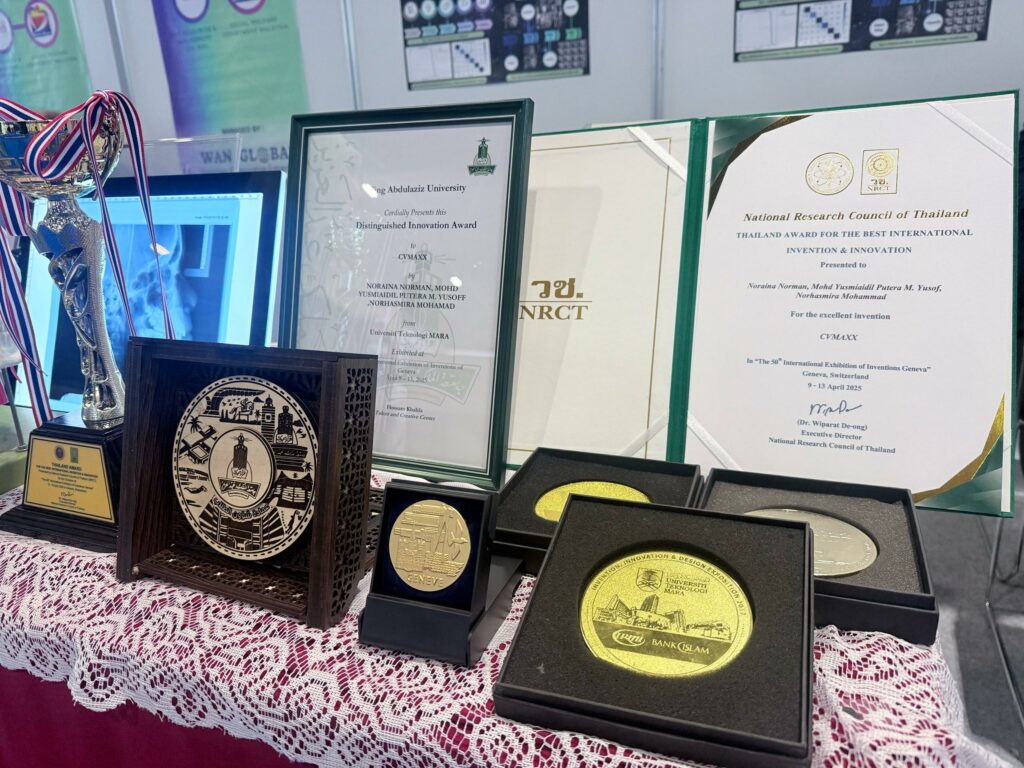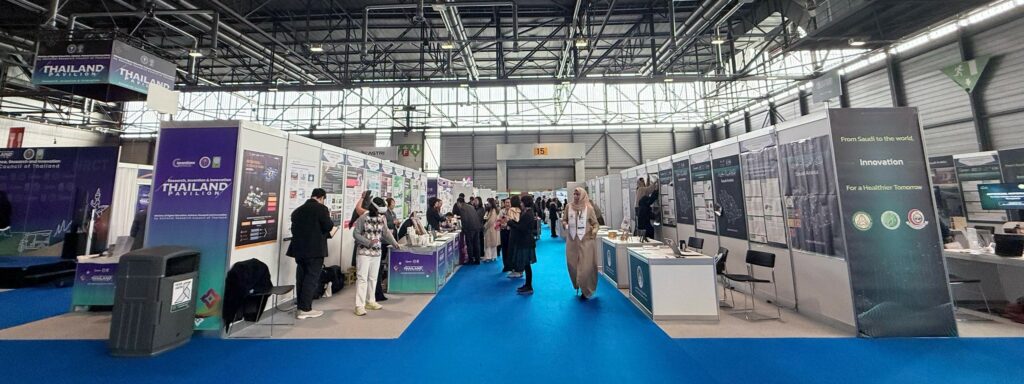The invention CVMaXX: AI-Powered Growth Detection System received international recognition at the 50th International Exhibition of Inventions held in Geneva, Switzerland. Developed to support orthodontic treatment planning, CVMaXX employs deep learning to automate the detection of cervical vertebral maturation (CVM), significantly reducing diagnostic subjectivity and enhancing consistency across clinical settings.

The project brought together researchers from the Faculty of Dentistry, Universiti Teknologi MARA, and the Faculty of Cognitive Sciences and Human Development, Universiti Malaysia Sarawak, representing a wide range of expertise. Prof. Dr. Mohd Yusmiaidil Putera Mohd Yusof, a forensic odontologist, and Associate Prof. Dr. Noraina Norman, an orthodontist, contributed essential clinical insights that ensured the system’s relevance to real-world diagnostic needs. Complementing this medical expertise, Dr. Norhasmira Mohammad from the Cognitive Science Programme led the development of the AI-powered system. Her role involved designing and training the deep learning model, integrating clinical datasets, and ensuring both the accuracy and scalability of the final solution. This interdisciplinary collaboration enabled the team to develop a system that is not only clinically precise but also technologically robust and adaptable across various healthcare contexts.

At the exhibition, CVMaXX was honoured with three major awards:
- Gold Medal with Jury Congratulations
- Special Award from the National Research Council of Thailand
- Distinguished Innovation Award from King Abdul Aziz University, Saudi Arabia
These accolades serve as a testament to the team’s shared commitment to research excellence, technological innovation, and societal impact. The Geneva exhibition, which featured innovators from over 40 countries, provided a valuable platform for international engagement and knowledge exchange.

Participation in this prestigious event marked both a significant professional milestone and a valuable learning opportunity. It underscored the importance of interdisciplinary collaboration and highlighted the potential of cognitive science to contribute meaningfully to technological advancement in healthcare.
Contributed by Dr. Norhasmira Mohammad,
Cognitive Science Programme, Faculty of Cognitive Sciences and Human Development